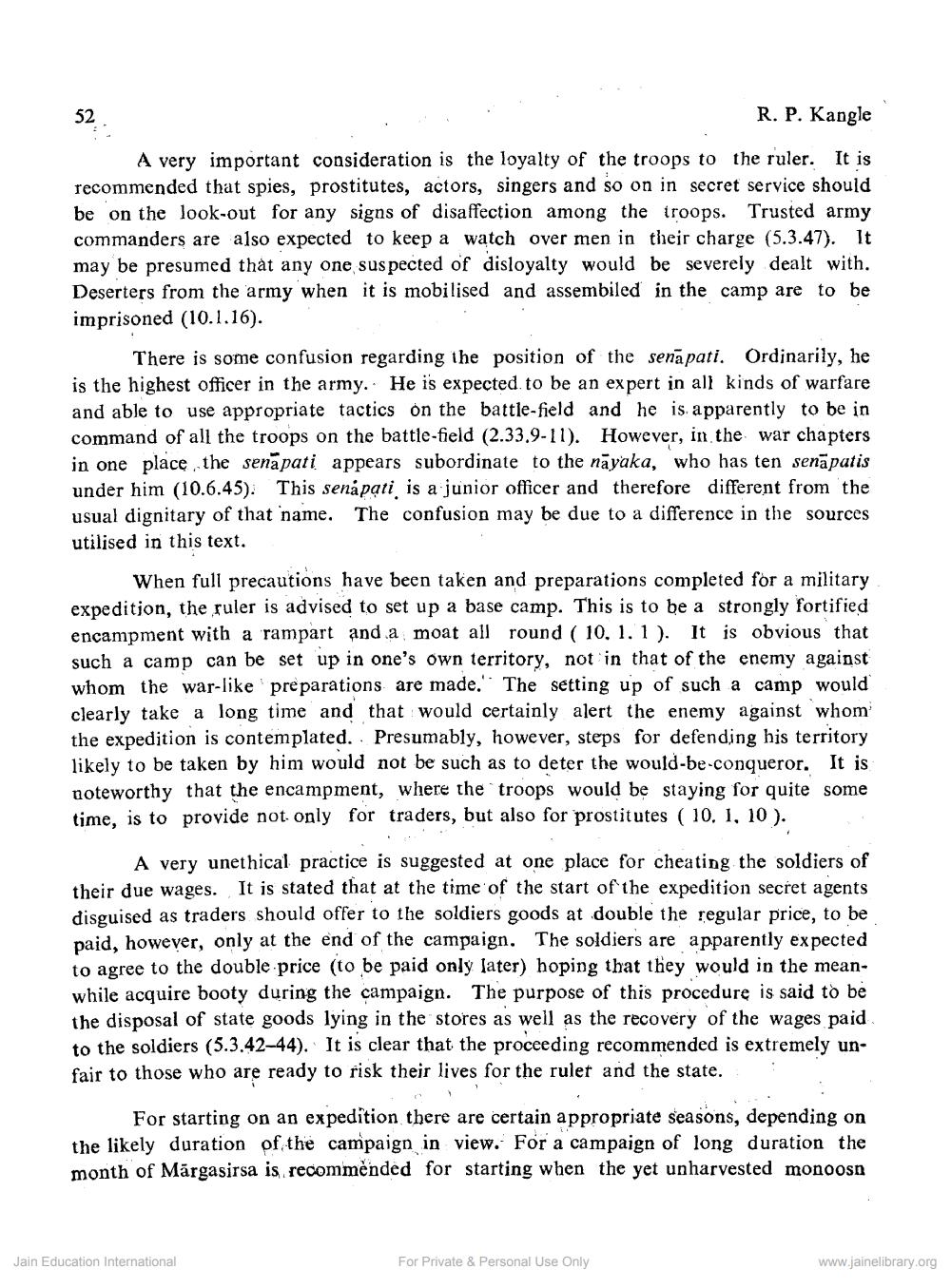________________
R. P. Kangle
A very important consideration is the loyalty of the troops to the ruler. It is recommended that spies, prostitutes, actors, singers and so on in secret service should be on the look-out for any signs of disaffection among the troops. Trusted army commanders are also expected to keep a watch over men in their charge (5.3.47). It may be presumed that any one suspected of disloyalty would be severely dealt with. Deserters from the army when it is mobilised and assembiled in the camp are to be imprisoned (10.1.16).
There is some confusion regarding the position of the senā pati. Ordinarily, he is the highest officer in the army. He is expected to be an expert in all kinds of warfare and able to use appropriate tactics on the battle-field and he is apparently to be in command of all the troops on the battle-field (2.33.9-11). However, in the war chapters in one place, the senapati appears subordinate to the nayaka, who has ten senāpatis under him (10.6.45). This senapati is a junior officer and therefore different from the usual dignitary of that name. The confusion may be due to a difference in the sources utilised in this text.
When full precautions have been taken and preparations completed for a military expedition, the ruler is advised to set up a base camp. This is to be a strongly fortified encampment with a rampart and a moat all round ( 10.1.1). It is obvious that such a camp can be set up in one's own territory, not in that of the enemy against whom the war-like preparations are made. The setting up of such a camp would clearly take a long time and that would certainly alert the enemy against whom the expedition is contemplated. Presumably, however, steps for defending his territory likely to be taken by him would not be such as to deter the would-be-conqueror. It is noteworthy that the encampment, where the troops would be staying for quite some time, is to provide not only for traders, but also for prostitutes ( 10. 1, 10).
A very unethical practice is suggested at one place for cheating the soldiers of their due wages. It is stated that at the time of the start of the expedition secret agents disguised as traders should offer to the soldiers goods at double the regular price, to be paid, however, only at the end of the campaign. The soldiers are apparently expected to agree to the double price (to be paid only later) hoping that they would in the meanwhile acquire booty during the campaign. The purpose of this procedure is said to be the disposal of state goods lying in the stores as well as the recovery of the wages paid to the soldiers (5.3.42-44). It is clear that the proceeding recommended is extremely unfair to those who are ready to risk their lives for the ruler and the state.
For starting on an expedition there are certain appropriate seasons, depending on the likely duration of the campaign in view. For a campaign of long duration the month of Mārgasirsa is recommended for starting when the yet unharvested monoosn
mpaign of long duration the
Jain Education International
For Private & Personal Use Only
www.jainelibrary.org




